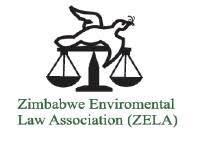Community guide on development induced displacement and resettlement in Zimbabwe
Resource information
Date of publication
Décembre 2018
Resource Language
ISBN / Resource ID
IDRC:10625/58365
Displacement induced by large scale investments and subsequent resettlement affects community access to land, land tenure patterns, and tenure security. This guide is published as part of the project ‘Strengthening Community Land Rights and Responses to Involuntary Displacements Caused by Development Projects in Zimbabwe.’ It highlights critical areas to be accounted for before introducing large scale developmental projects. These projects endanger communities’ land-related environmental, economic, social and cultural rights and benefits enshrined by the Constitution of Zimbabwe. Developmental projects across different sectors have forced displacement of communities without benefit to the host regions.
Publisher(s)
Data Provider
Geographical focus



